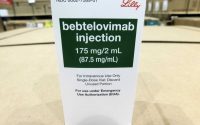Chemotherapy could increase disease susceptibility in future generations
A common chemotherapy drug could carry a toxic inheritance for children and grandchildren of adolescent cancer survivors, Washington State University-led research indicates.
The study, published online in iScience, found that male rats who received the drug ifosfamide during adolescence had offspring and grand-offspring with increased incidence of disease. While other research has shown that cancer treatments can increase patients’ chance of developing disease later in life, this is one of the first-known studies showing that susceptibility can be passed down to a third generation of unexposed offspring.
“The findings suggest that if a patient receives chemotherapy, and then later has children, that their grandchildren, and even great-grandchildren, may have an increased disease susceptibility due to their ancestors’ chemotherapy exposure,” said Michael Skinner, a WSU biologist and corresponding author on the study.
Skinner emphasized that the findings should not dissuade cancer patients from undertaking chemotherapy since it can be a very effective treatment. Chemotherapy drugs kill cancerous cells and prevent them from multiplying, but have many side-effects since they impact the whole body, including reproductive systems.
Given this study’s implications, the researchers recommend that cancer patients who plan to have children later take precautions, such as using cryopreservation to freeze sperm or ova before having chemotherapy.
In the study, researchers exposed a set of young male rats to ifosfamide over three days, mimicking a course of treatment an adolescent human cancer patient might receive. Those rats were later bred with female rats who had not been exposed to the drug. The resulting offspring were bred again with another set of unexposed rats.
Source: Read Full Article

